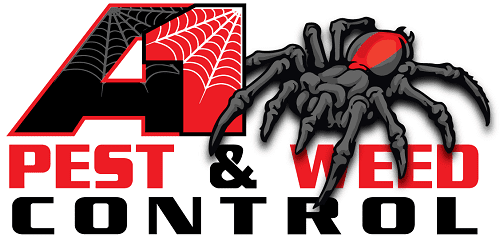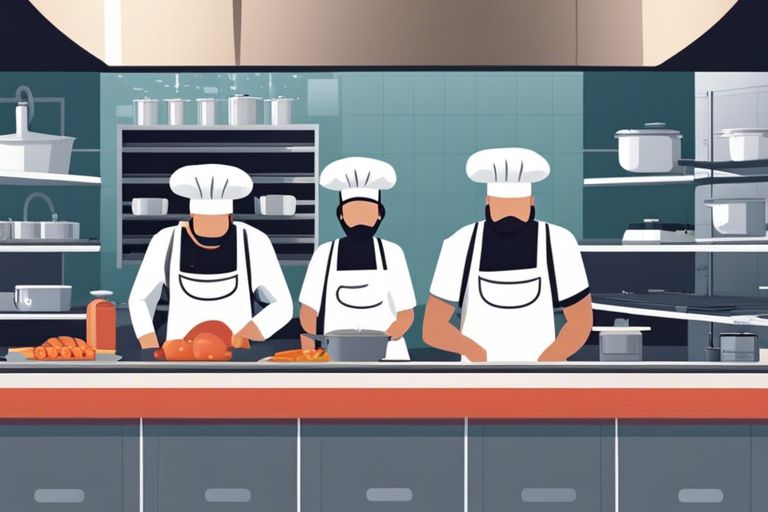Food establishments in Melbourne must prioritize stringent pest control measures to ensure the safety and integrity of their food products. The presence of pests in a food environment can pose serious health risks to consumers and tarnish the reputation of a business. To combat this threat, Melbourne has implemented strict regulations and guidelines that all food businesses must adhere to in order to maintain the highest standards of food safety.
Key Takeaways:
- Pest Control Plan: Establish a comprehensive pest control plan to prevent and manage potential infestations in food establishments.
- Regular Inspections: Conduct regular inspections of the premises for signs of pests such as droppings, nests, or gnaw marks.
- Hygiene Practices: Implement strict hygiene practices to eliminate food sources that may attract pests.
- Sealing Entry Points: Seal off entry points like cracks, crevices, and holes to prevent pests from entering the premises.
- Employee Training: Provide training to staff on pest management protocols and the importance of maintaining food safety standards.
Understanding Food-Related Pests
Common Pests in Melbourne’s Food Industry
One of the common pests found in Melbourne’s food industry includes rodents such as mice and rats. These pests are attracted to food sources, water, and shelter that are readily available in food establishments. In addition, cockroaches are another common pest that pose a threat to food safety in Melbourne. These pests can contaminate food with bacteria and pathogens, leading to foodborne illnesses.
Health Risks Associated with Pests
One of the main health risks associated with pests in the food industry is the potential spread of diseases. Rodents and insects can carry bacteria such as Salmonella and E. coli, which can contaminate food and surfaces in a food establishment. This contamination can lead to food poisoning and other illnesses if not addressed promptly.
With proper pest control measures in place, food establishments can minimize the health risks associated with pests. Regular inspections, proper sanitation practices, and sealing entry points are necessary steps in preventing pest infestations in food-related areas.
Food Safety Legislation and Compliance
Australian Food Safety Standards
Standards for food safety in Australia are regulated by the Food Standards Australia New Zealand (FSANZ). These standards ensure that food businesses comply with stringent regulations to guarantee the safety and quality of the food supply chain. Businesses in Melbourne must adhere to the Food Safety Standards Code which covers various aspects such as hygiene practices, food handling, storage, and preparation procedures.
Melbourne’s Local Health Regulations
On a local level, Melbourne’s food businesses must also comply with the regulations set by the local health department. These regulations complement the national standards by providing specific guidelines tailored to the unique needs of the Melbourne community. Inspections and audits are conducted regularly to ensure that businesses are meeting these requirements to maintain a safe and healthy environment for customers.
Plus, Melbourne has its own set of pest control regulations that food businesses must adhere to. This includes proper prevention measures to avoid infestations and timely measures to address any pest issues that may arise. Failure to comply with these regulations can result in fines, closure of the business, and damage to the reputation of the establishment.
Preventative Pest Management Strategies
Best Practices for Food Storage
Best practices for food storage are vital in preventing pest infestations in food establishments. Keep all food products tightly sealed in air-tight containers to avoid attracting pests such as ants and rodents. Regularly check for signs of pest activity in storage areas and dispose of any infested food items immediately. Store food off the floor and away from walls to make it harder for pests to access.
Structural Maintenance and Hygiene
Pest control experts recommend that structural maintenance and hygiene play a crucial role in preventing pest infestations. Regularly inspect and repair any cracks or crevices in walls, floors, and ceilings where pests could enter the premises. Keep the food establishment clean and free of spills or food debris that could attract pests. Implement a strict cleaning schedule to ensure that all areas are regularly sanitized to deter pest activity.
Pest Detection and Monitoring
Signs of Pest Infestation
All food establishments in Melbourne should be vigilant in observing any signs of pest infestation. The presence of droppings, gnaw marks, nests, or dead bugs are common indicators that pests have invaded the premises. Noticing any of these signs should immediately trigger a thorough investigation and prompt action to prevent further infestation.
Implementing an Integrated Pest Management Program
For effective pest control, it is crucial for food establishments to implement an Integrated Pest Management (IPM) program. This approach focuses on prevention, monitoring, and control through a combination of techniques such as maintaining cleanliness, sealing entry points, setting traps, and using pesticides as a last resort. Regular inspections by trained pest control professionals also play a key role in identifying and addressing potential pest issues before they escalate.
It is vital to keep detailed records of pest sightings, control measures taken, and any trends observed over time. By documenting this information, food establishments can track the effectiveness of their pest management strategies and make necessary adjustments to ensure a pest-free environment.

Pest Control Techniques
For Pest Control, various methods are employed to ensure the safety and cleanliness of food establishments in Melbourne. In the matter of pest control, it is crucial to implement both chemical and non-chemical measures to effectively tackle and prevent pest infestations.
Chemical Control Measures
Measures such as pesticides and insecticides are commonly used in food establishments to eliminate pests swiftly and effectively. It is imperative to follow all safety guidelines and regulations when using chemical control measures to ensure the safety of food products and the health of customers. Regular inspections and monitoring are also important to gauge the effectiveness of the chemical control methods and make any necessary adjustments.
Non-Chemical Methods and Natural Remedies
Any food establishment must consider non-chemical methods and natural remedies as part of their pest control strategy. This can include using physical barriers, such as screens and traps, to prevent pests from entering the premises. Additionally, natural remedies like imperative oils and herbal deterrents can be used to repel pests without relying on chemicals.
Remedies such as maintaining cleanliness, proper waste management, and sealing off entry points can significantly reduce the risk of pest infestations. By employing a combination of non-chemical methods and natural remedies, food establishments can create a comprehensive pest control plan that is both effective and environmentally friendly.
Innovations in Pest Control Technology
On the forefront of pest control technology are innovations such as smart traps, ultrasonic repellers, and digital monitoring systems. These advancements allow food establishments to take a proactive approach to pest control by detecting and addressing issues quickly. By utilizing these cutting-edge technologies, businesses can stay ahead of potential pest problems and maintain a high standard of food safety.
Another imperative aspect of pest control technology is the use of data analysis and predictive modeling to anticipate pest behavior and plan preventive measures accordingly. These sophisticated tools provide valuable insights that help food establishments tailor their pest control strategies for maximum effectiveness.
Education and Training
Training Staff on Pest Awareness and Prevention
Training staff on pest awareness and prevention is crucial in maintaining a high standard of food safety in Melbourne. Staff members should be educated on the common pests that can infest food establishments, how to identify signs of pest activity, and the appropriate measures to take in case of an infestation.
Regular training sessions should be conducted to ensure that all staff members are equipped with the knowledge and skills necessary to prevent pest-related issues. This includes proper storage of food items, maintaining cleanliness in food preparation areas, and promptly reporting any sightings of pests to the designated personnel.
Public Education Initiatives
Training the public on food safety and pest prevention measures is also imperative in creating a safer dining environment in Melbourne. Public education initiatives can include informational campaigns, workshops, and seminars aimed at raising awareness about the importance of proper food handling practices and the risks associated with pests in food establishments.
By educating the public about food safety measures, Melbourne can work towards reducing the prevalence of foodborne illnesses and pest-related incidents in the city. Public education initiatives serve as a proactive approach to preventing issues before they arise, ultimately promoting a healthier and safer dining experience for residents and visitors alike.
To wrap up
Melbourne’s food safety regulations require stringent pest control measures to be in place to ensure the health and safety of consumers. By implementing comprehensive pest control strategies, including regular inspections, proper sanitation practices, and the use of qualified pest management professionals, businesses can effectively prevent the presence of pests in their food establishments.
It is crucial for food businesses in Melbourne to prioritize pest control measures as part of their overall food safety protocols to maintain compliance with regulations and protect public health. By staying vigilant and proactive in addressing pest issues, businesses can create a safe and hygienic environment for their customers, ultimately contributing to a positive dining experience for all.
FAQ
Q: What are the key measures for ensuring food safety in Melbourne?
A: In Melbourne, key measures for ensuring food safety include proper pest control, regular inspections, training staff on food safety protocols, maintaining cleanliness, and following all food safety regulations.
Q: Why is pest control important in food establishments in Melbourne?
A: Pest control is crucial in food establishments in Melbourne to prevent contamination of food products, avoid the spread of diseases, maintain a safe and hygienic environment, and comply with food safety standards.
Q: How often should pest inspections be conducted in food establishments in Melbourne?
A: Pest inspections should be conducted regularly in food establishments in Melbourne, ideally on a monthly basis. However, the frequency may vary depending on the type of establishment and the level of pest risk present.
Q: What are the common pests that food establishments in Melbourne should watch out for?
A: Common pests that food establishments in Melbourne should watch out for include rodents, cockroaches, flies, ants, and stored product pests like beetles and weevils. These pests can contaminate food and pose health risks to consumers.
Q: How can food establishments in Melbourne prevent pest infestations?
A: Food establishments in Melbourne can prevent pest infestations by sealing any entry points, keeping food storage areas clean and organized, properly disposing of waste, maintaining proper drainage, and working with licensed pest control professionals for regular inspections and treatments.

